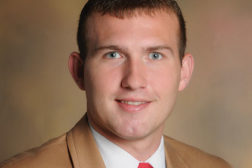Physical Security
ASIS 2014: Technology to Equip Enterprises for Success
Noteworthy Security Products from ASIS 2014
September 1, 2014
International Fighters Flock to High-Risk Battlegrounds
The Syrian civil war has resulted in the deaths of 150,000 people, more than 500,000 injured and millions displaced internally and outside Syria.
September 1, 2014
Sign-up to receive top management & result-driven techniques in the industry.
Join over 20,000+ industry leaders who receive our premium content.
SIGN UP TODAY!Copyright ©2024. All Rights Reserved BNP Media.
Design, CMS, Hosting & Web Development :: ePublishing






